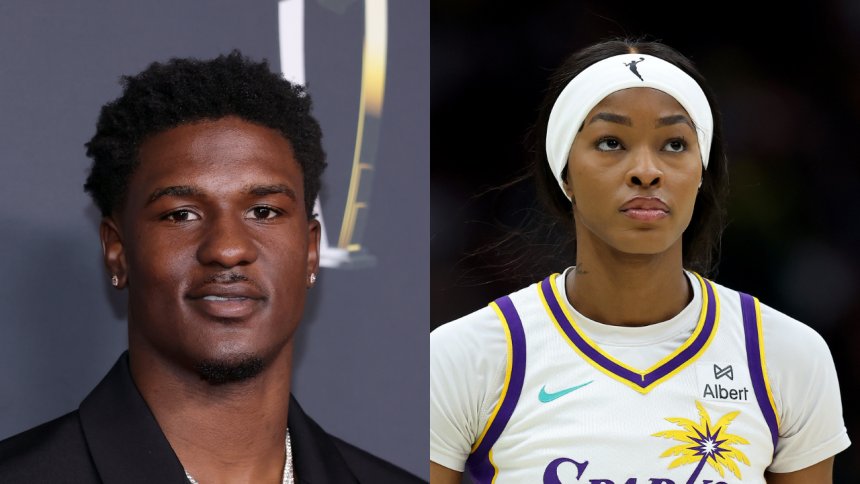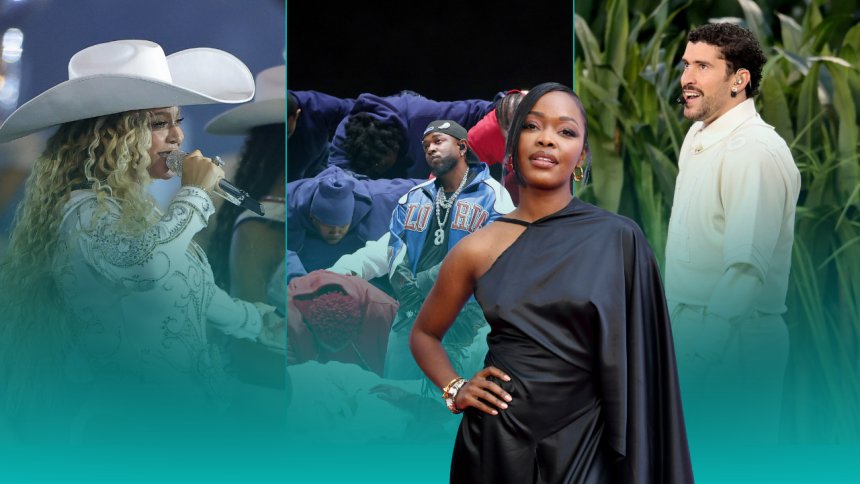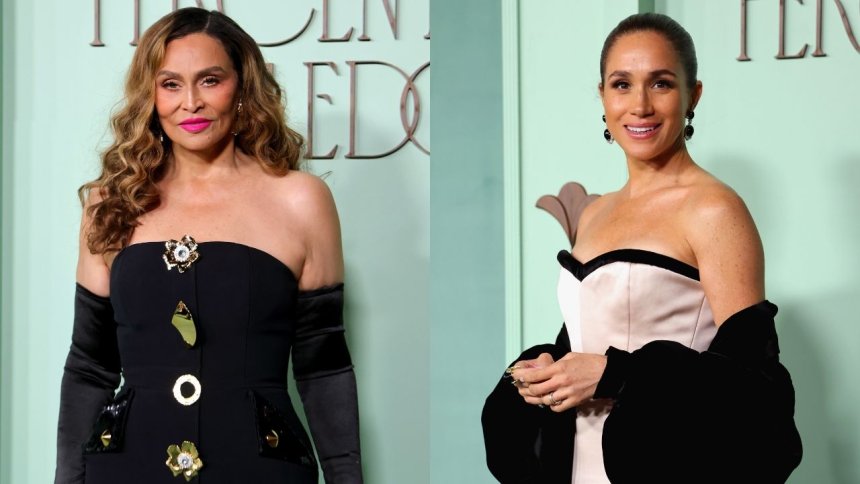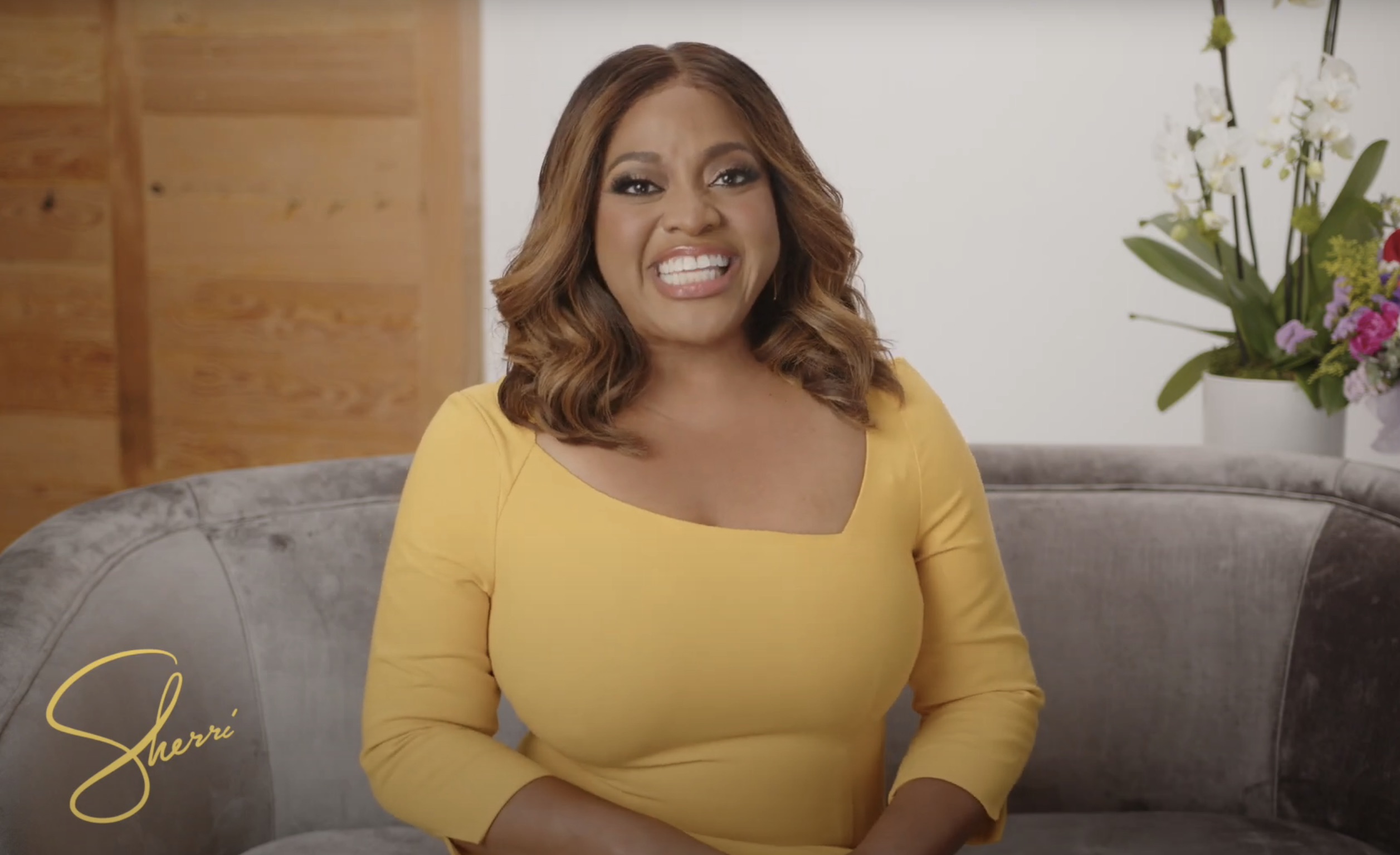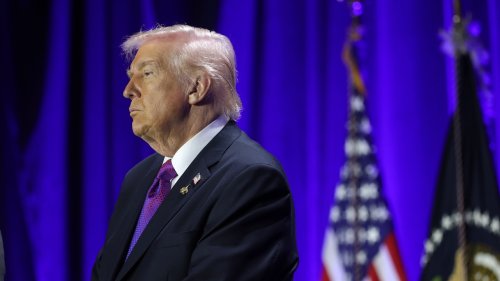For Black voters who picked Zohran Mamdani when Cuomo, Adams, and old ways weren’t enough
ANALYSIS: The Democratic Party could learn that connecting with new generations of Black voters will require more than traditional political
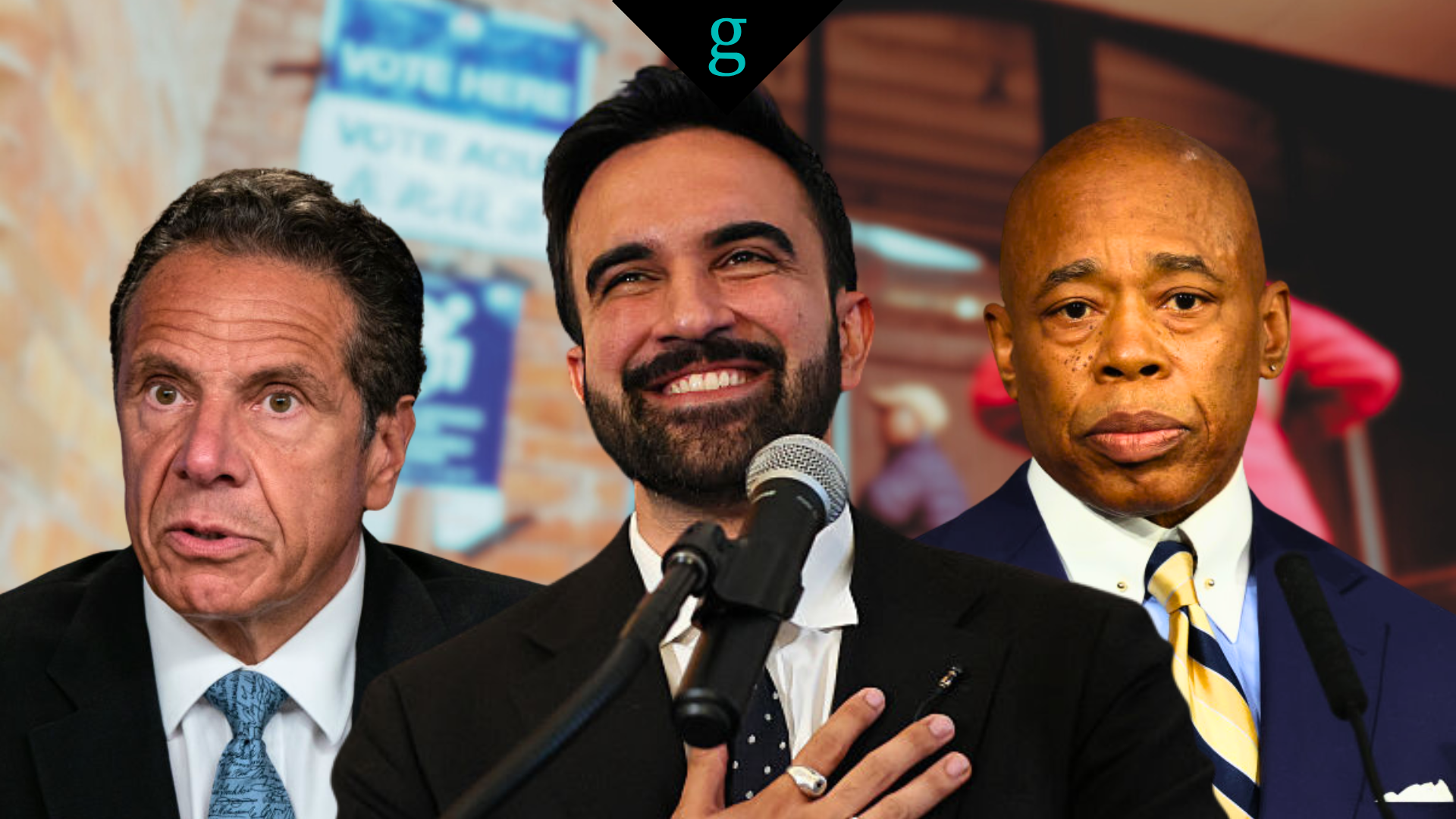
ANALYSIS: The Democratic Party could learn that connecting with new generations of Black voters will require more than traditional political methods or assumptions. Cuomo may have won with Black voters, but a certain segment is ready for change.
If you were a Black voter of a certain age in New York City, many people expected you to vote for Andrew Cuomo in Tuesday’s mayoral race.
The numbers show, by and large, that’s what happened–Cuomo had a 20-point advantage with Black voters over State Assemblyman Zohran Mamdani, earning over 51% of the vote.
But while Cuomo emerged from his resignation-retirement in hopes of running the city, his big loss to Mamdani shows that most Democratic voters didn’t want the so-called safer bet.
So why did Mamdani win? And what was his appeal to the Black voters who turned out for Mamdani from Bed-Stuy to parts of Washington Heights? It wasn’t just that he was born in Africa (to Muslim parents in Uganda) or his middle name is Kwame (named after Kwame Nkrumah) or that he once was a rapper (Mr. Cardamom).
Beyond the superficial, Mamdani was able to capture hearts, imaginations, and wallets.
With promises of rent freezes, free bus rides, and baby baskets for the tiniest New Yorkers, Mamdani helped voters feel like their vote translated into tangible support for the affordability crisis plaguing New York City. Mamdani generated raw enthusiasm that Cuomo didn’t as a perceived insider. Mamdani walked down streets, knocked on doors, translated ads into different languages, and drew on social media viewers in the same way Obama did back in ‘08 with digital campaigning. 
Meanwhile, Cuomo drew mostly money–but from places that concerned many progressive voters, especially Black ones.
Cuomo’s $25 million from one SuperPAC alone, and money from the likes of Michael Bloomberg and Trump supporters like billionaire Bill Ackman, who helped kill DEI and oust Harvard’s first Black president. By contrast, Mamdani earned support from more than 20,000 individual contributors– meaning that more everyday people thought it worth sacrificing their hard-earned money to support his campaign.
“Why would you vote for Andrew Cuomo, who is supported by the same people who supported Donald Trump?” said activist and author, Tamika Mallory, who published multiple #NoCuomo social media videos via Instagram warning Black voters that Cuomo had name recognition but he was funded by sources whose politics were antithetical to Black communities.
“Why would you vote for a man who’s been accused of sexual assault, just like Donald Trump has been convicted? Why would we vote for a person in NYC to be mayor who has the same exact support from the people who supported Donald Trump financially and are also the ones who are behind the anti-diversity, equity, and inclusion movement?”
For these Black voters, not only was Cuomo’s money not enough, but the promise of racial representation in the mayor’s seat wasn’t enough either. Despite there being five Black candidates in the race on the Democratic side (not counting Eric Adams, who is Independent), no Black candidate broke double-digit support in votes counted so far. Even in a city with a population of 2 million Black people, the very competent Speaker Adrienne Adams came in fourth place, earning 4.1% of the votes, after Brad Lander’s 11.3%.
“We, the Black community at-large, whether sort of like the elders in the Black community or the young people in the Black community, have an understanding that what has been happening for generations hasn’t been working at large for us,” says Frederick T. Joseph, a Queens resident and New York Times bestselling author in an interview with theGrio. “And so we’re primed for a new vision. Zoran Mamdani spoke to that new vision.”
Joseph continued, “Cuomo, not only does he represent…a bygone era of sort of simply pandering to Black voters with no real intent to move the needle for the things we need, which are oftentimes largely rooted in socialist ideals…We look at a Democratic establishment that has largely spoken of Donald Trump on a national level as this sex offender, as this deeply problematic human being as it relates to basically any morality, and Andrew Cuomo is not far off from that, right?”
Despite a high-profile endorsement from significant Black power players like Congressman Jim Clyburn of South Carolina, New Yorkers like Andom Ghebreghiorgis say what has worked nationally or traditionally in the past with Black voters doesn’t always translate to newer coalitions of Black voters. Ghebreghiorgis says he asked an older family member, who is an immigrant, if Clyburn’s endorsement from states away made a difference, and she simply said no.
“You have a lot of new Black voters coming into the fold who were voting either for the first time or the second time. You have to have something that is beyond just identity politics or even just this appeal that… ‘This is what we’ve done in the past.’ Just because my grandmother was voting for someone doesn’t mean I’m inclined to vote in the same way,” he tells theGrio.
Ghebreghiorgis, who also ran for Congress in New York’s 16th Congressional District in 2020, says he met Zohran Mamdani in his early political career at a Bernie Sanders rally and felt right away that he was motivated by the right things.
“I was like, let me open my wallet. I saw I had $5. You know, why not? He seems like a really nice guy. I like his values. We all understood that we had the same hope for a new America, and that’s why we were all there,” he said.
Ghebreghiorgis hosted a “Black Folks & Latinos for Zohran” canvass event last week, which reflected the strong ground game Mamdani had across the city and the thousands of doors the campaign knocked on. He points out that Black people had the highest percentage of undecided voters at 21% heading into the final days of the election, which reflected that there had always been room to influence them if done right. 
“Cuomo likely wasn’t going to gain new voters. All he could do was bleed away the old voters who knew who he was. And so, as someone who is personally and politically caring about the Black community in New York, I wanted to try to make sure I could do as much as I could. To make sure my community knew about Zohran so we could increase that name recognition,” Ghebreghiorgis tells theGrio.
The final numbers are still being tallied, and we don’t know how many Black residents gave Cuomo their vote, but given his second-place finish, there is still a chance Cuomo may run as an Independent in the general election.
It’s there that Cuomo would face another candidate who a segment of Black voters has a problem with: Mayor Eric Adams.
While Adams has said he’s eager to face off with Cuomo or Mamdani, already calling Mamdani a “snake oil salesman” in the wake of his primary win, Adams will have to address concerns from progressive Black voters that he’s not just a Republican in an Independent’s clothing.
“Blackness is not a monolith,” says Joseph when asked about Mayor Adams. “I think that Eric Adams became mayor based on the sort of height of the ‘listen to Black people’ moment that came out of 2020 and the horrible murders of George Floyd, and Breonna Taylor, and Ahmaud Arbery.”
He explained, “So people in their guilt and their grief and their lack of understanding that Blackness is not a monolith, sought any Black candidate that they could find. He was sort of the run-of-the-mill, conservative Black voice in the Democratic Party at that time. It is a grifting mayorship, and I personally can’t wait for it to be over.” 
That scathing critique is one Adams will find in various pockets of voters who take issue with his cooperation with the Trump administration, emphasis on policing, and reputation as a mayor frequently about town.
New Yorkers will have their say in November, but if Democrats learn from the primary, it’s that in 2025, old rules are meant to be broken. If the Trump administration has taught us anything, it’s that people are willing to risk it all for a bet on a so-called change candidate.
Voters don’t care about whose turn it is to step up and lead, and if a candidate has a spark with voters, they should pour gasoline and maybe even money into that flame to make a fire. And the very least, they should investigate what’s clicking and lean into it or find someone to match it.
From Bernie Sanders to AOC to Jasmine Crockett, there a multiple case studies of Dems who were told to wait for someone more senior to step or ‘pipe down’ when speaking plainly, and it’s cost them with the most energetic and youthful segments of the party.
The promise of another “first Black” or “first woman” (insert political title) won’t be enough of a draw if the communication of candidates’ vision isn’t clear, and people are counting pennies at the grocery store. It will be the leader who communicates competency and vision that draws people away from their complicated lives to cast a vote.
If Mamdani is still taking notes from his win, he should seize this moment. Black Cuomo voters may now be more open to hearing what he has to say since he’s proven he can beat a giant—he’ll need to reach them in all the places it matters to ensure Adams doesn’t lure them back into the fold.
New York City may or may not get a Mayor Mamdani before the year is over, but Dems could get even more wins across the country if they aren’t threatened by new voices but welcome the sound of something different.

Natasha S. Alford is the Senior Vice President of TheGrio. A recognized journalist, filmmaker, and TV analyst, Alford is also the author of the award-winning book, “American Negra.” (HarperCollins, 2024) Follow her on Twitter and Instagram at @natashasalford.
Share
What's Your Reaction?
 Like
0
Like
0
 Dislike
0
Dislike
0
 Love
0
Love
0
 Funny
0
Funny
0
 Angry
0
Angry
0
 Sad
0
Sad
0
 Wow
0
Wow
0
